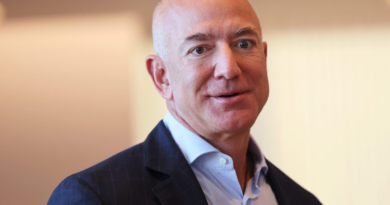Only 2 Ivy League schools land grads a six-figure salary 10 years out
Sorry, Gen Z grads: Ritzy college degrees just aren’t the golden ticket to big paychecks that they perhaps used to be. New data shows that even those studying at Ivy League schools aren’t guaranteed a six-figure salary.
The Department of Education’s College Scorecard tracked the median earnings, average annual cost, and median debt for former Ivy League students who received federal financial aid.
According to the research, only two of the eight Ivy League schools landed students with jobs paying more than $100,000 a whole decade after studying there: the University of Pennsylvania and Princeton University.
Those who studied at the University of Pennsylvania (and had financial aid) had the highest salary 10 years after tossing their graduation caps in the air at $112,761. Meanwhile, at $87,811, Brown University students had the lowest median earnings 10 years after graduating.
Despite being world-renowned, Harvard came in second to last when ranking the wages of former Ivy League students who received federal financial aid.
Median salaries of former Ivy League students 10 years later
1. The University of Pennsylvania: $112,761
2. Princeton University: $110,433
3. Cornell University: $98,321
4. Columbia University: $97,540
5. Yale University: $95,961
6. Dartmouth College: $95,540
7. Harvard University: $95,114
8. Brown University: $87,811
Nearly half of master’s degree programs leave students financially worse off
Of course, not everyone gets financial aid to help with the eye-wateringly high costs associated with going to college. In reality, the Ivy League is known for enrolling students from wealthy families who are likely to secure lucrative careers no matter where they go to college.
However, separate studies have also shown that despite being previously seen as prestigious qualifications, degrees generally have lost their charm.
Across the board, 23% of bachelor’s programs yield a negative financial return on investment according to the Foundation for Research on Equal Opportunity; this nearly doubles to 43% for master’s degrees.
“Even the MBA, one of America’s most popular master’s degrees, frequently has a low or negative payoff,” the report warned.
It comes as college fees keep skyrocketing. Many major employers have dropped their long-held degree requirements, and recruiters globally are significantly more likely to search for new hires by skills over higher education.
Even LinkedIn has concluded that the hottest skills to land a job right now can’t be learned in a textbook and that in 90% of cases grads could have gotten a job without the once-lauded qualification.
If you want proof, look no further than the fastest-growing job in the U.S. right now—wind turbine service technician—which pays up to $103,000 a year and doesn’t require a college degree.
‘People are starting to smell a rat’
A massive survey of Gen Z workers found that 40% of people ages 16 to 26 did not believe they needed a university degree to have a successful career.
It perhaps explains why the youngest generation of workers are shunning college (and with it, the prospect of a corporate career) to take up traditional trades like welding, plumbing, and carpentry.
Enrollment in vocational-focused community colleges rose 16% last year to its highest level since the National Student Clearinghouse began tracking such data in 2018. Meanwhile, the same data shows a 23% surge in students studying construction trades in 2023 compared to the year before.
“People are starting to smell a rat,” Mike Rowe, the CEO of MikeRoweWorks Foundation, commented on the shift, adding that blue-collar jobs “are a straight path to a six-figure job” without the burden of debt.
Take Chase Gallagher, for example: The 23-year-old started his lawn mowing side hustle as a teenager, and it’s now generating more than $1 million in revenue.
“I just didn’t see the ROI in going to university,” the Gen Zer told Fortune. “You can still be a 1% income earner here in America and be a trades business owner.”




